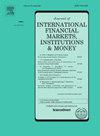Understanding reputational risks: The impact of ESG events on European banks
IF 6.1
2区 经济学
Q1 BUSINESS, FINANCE
Journal of International Financial Markets Institutions & Money
Pub Date : 2025-10-06
DOI:10.1016/j.intfin.2025.102225
引用次数: 0
Abstract
This study examines the financial impact of negative ESG events on European banks. Exploiting a dataset of 11,832 reputational shocks from 2007 through 2023, we find evidence of significant negative abnormal stock returns and increased volatility following negative media coverage. High-severity media coverage, as well as the reporting of previously unknown problems, increases the magnitude of the shock. We complement the main analysis with a rich dataset of bank characteristics to explain variations in the results. Furthermore, we find that deposit instability exacerbates these effects, such that banks with more volatile deposit bases suffer more pronounced stock price declines following ESG incidents, indicating that investors perceive them as more vulnerable to sudden changes in sentiment. However, banks with stronger ex-ante ESG engagement experience less deposit volatility and more muted market responses, which highlights the role of ESG practices in mitigating reputational risk. A range of placebo testing procedures are employed to demonstrate that these effects are specific to the bank-level ESG events in our data and not caused by general market movements. Our findings highlight the interconnection between ESG risk, investor and depositor reactions, and the protective value of sustained ESG engagement.
理解声誉风险:ESG事件对欧洲银行的影响
本研究考察了负面ESG事件对欧洲银行的财务影响。利用2007年至2023年11,832次声誉冲击的数据集,我们发现了显著的负异常股票回报和负面媒体报道后波动性增加的证据。高度严厉的媒体报道,以及对以前未知问题的报道,增加了冲击的程度。我们用丰富的银行特征数据集来补充主要分析,以解释结果的变化。此外,我们发现存款不稳定加剧了这些影响,存款基础波动较大的银行在ESG事件发生后股价下跌更为明显,这表明投资者认为它们更容易受到情绪突然变化的影响。然而,事前ESG参与程度较高的银行存款波动性较小,市场反应较弱,这凸显了ESG实践在降低声誉风险方面的作用。我们采用了一系列安慰剂测试程序来证明,这些影响仅针对我们数据中的银行级ESG事件,而不是由一般市场波动引起的。我们的研究结果强调了ESG风险、投资者和存款人的反应以及持续参与ESG的保护价值之间的相互联系。
本文章由计算机程序翻译,如有差异,请以英文原文为准。
求助全文
约1分钟内获得全文
求助全文
来源期刊
CiteScore
6.60
自引率
10.00%
发文量
142
期刊介绍:
International trade, financing and investments, and the related cash and credit transactions, have grown at an extremely rapid pace in recent years. The international monetary system has continued to evolve to accommodate the need for foreign-currency denominated transactions and in the process has provided opportunities for its ongoing observation and study. The purpose of the Journal of International Financial Markets, Institutions & Money is to publish rigorous, original articles dealing with the international aspects of financial markets, institutions and money. Theoretical/conceptual and empirical papers providing meaningful insights into the subject areas will be considered. The following topic areas, although not exhaustive, are representative of the coverage in this Journal. • International financial markets • International securities markets • Foreign exchange markets • Eurocurrency markets • International syndications • Term structures of Eurocurrency rates • Determination of exchange rates • Information, speculation and parity • Forward rates and swaps • International payment mechanisms • International commercial banking; • International investment banking • Central bank intervention • International monetary systems • Balance of payments.

 求助内容:
求助内容: 应助结果提醒方式:
应助结果提醒方式:


